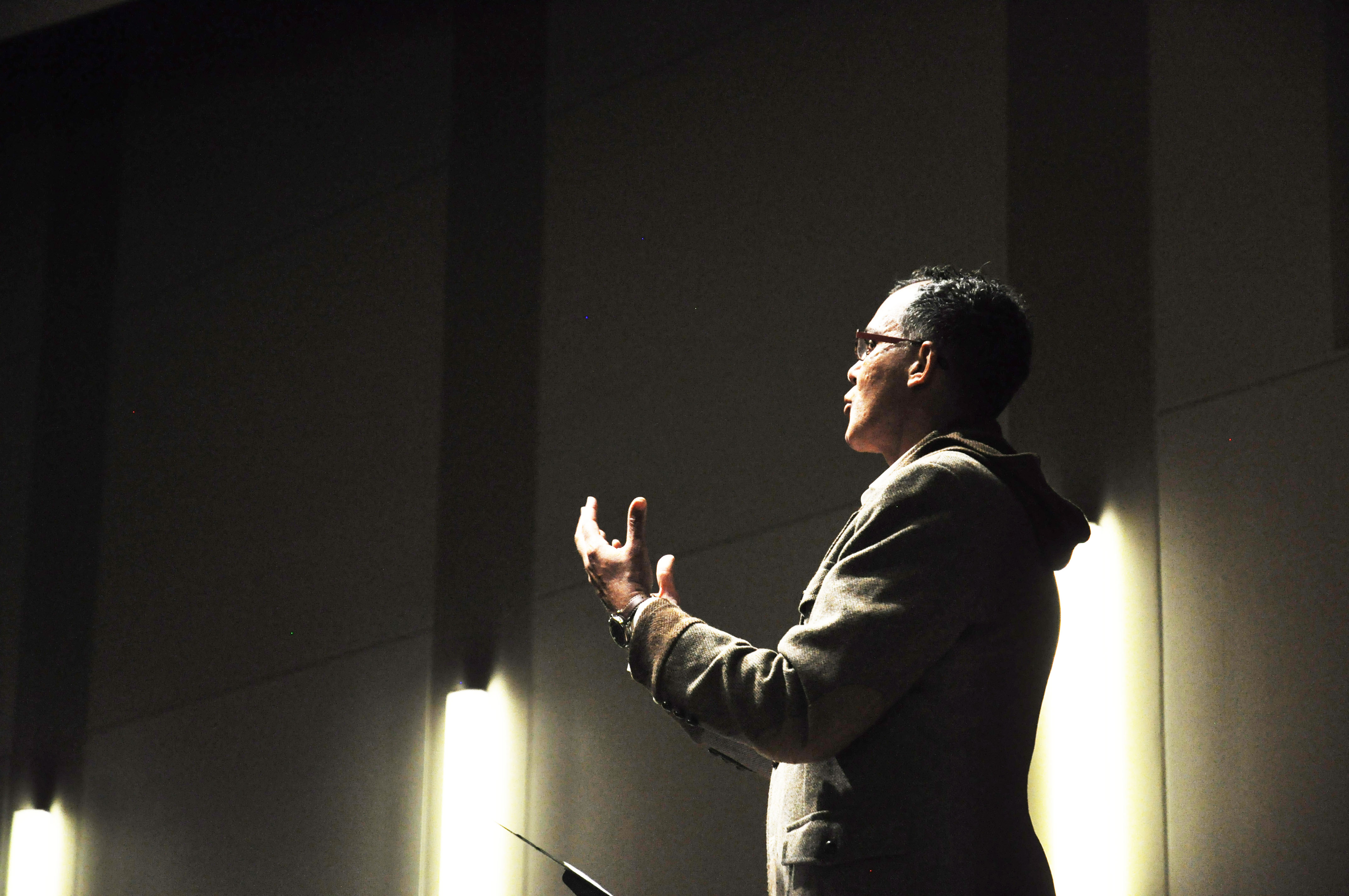Emily Norman, Contributor
Dr. James Forman Jr. came to USM to speak about his book, Locking Up Our Own: Crime and Punishment in Black America. This was part of this year’s Gloria S. Duclos Convocation, following the theme of race and participatory democracy. The event was held on the Portland campus in the Abromson Center.
Forman’s book and speech detail the histories and events that led to the current epidemic of mass incarceration in the United States, especially for African Americans. He started off by talking about his personal experiences as a defense lawyer in Washington D.C., and a particular case when a black judge sent a black teen, Brandon, whom Forman he was defending, to a juvenile detention center rather than giving him a second chance. This particular ruling frustrated and angered Forman, who failed to understand how a member of the black community could be so quick to sentence another to such a harsh punishment.
Forman, whose parents were both civil rights activists in the 1960s, saw the fight against increasingly punitive punishments as unfinished business that lingered from the movement his parents had participated in. He sought to understand why the judge, who was African American himself, believed so strongly in enforcing such punitive punishments.
After many similar experiences in the D.C. criminal justice system, Forman decided to try and find an answer as to why so many members of the black community believed in enforcing punitive punishments. He decided to try and understand the point of view of others, including those who didn’t share his view of fighting mass incarceration.
“I had to try to do something,” Forman said, “which we don’t do enough in this country nowadays – I had to try and understand the beliefs and ideas of someone who disagreed with me.”
From there, Forman discussed the different perspectives and beliefs he discovered in the black community around crime and punishment. “There is no single perspective,” Forman said. “In my book, I wanted that diversity represented.”
This diversity of opinions came about after the Civil Rights Movements, when for the first time black people finally had the ability to represent themselves in law enforcement and public service jobs. For the first time, African Americans felt that they could rely on law enforcement to help curb crime in their neighborhoods. Before the Civil Rights Movements police wouldn’t even show up if they were called to black areas.
With police and members of local government more apt to respond and send help, more black people called to report crimes they saw or to ask for help with people with substance abuse disorders in their neighborhood. This, combined with existing institutional and cultural racism, led to more and more people of color ending up incarcerated, and after a number of years, led to the mass incarceration we see in the U.S. today.
Forman ended by sharing his idea that we all need to “expand our imaginations” when it comes to ideas of crime and punishment. Thus far in the history of this country, the solution for dealing with criminals is to put them in jail. The U.S. does very little in terms of rehabilitation, whether it is rehabilitation for mental health, for job security or for education.
“We need to replace mass incarceration with something productive,” Forman said. “[And] with safety and justice.”
The ideas put forth by Forman about coming together and rethinking our beliefs regarding crime and punishment seem particularly pertinent in today’s tense political climate. He made sure the audience knew they could be a part of the change, telling them, “so much of the action is local.”
Though it often feels like individuals have no control over change, people can help to be a part of it. If people want to be involved in changing the way criminals are treated and the problem of mass incarceration, a good start start would be voting in local governments, and especially voting for local defense attorneys.
Anyone who was unable to make the event but wishes to learn more about race, crime and punishment can purchase Forman’s book, Locking Up Our Own: Crime and Punishment in Black America at his website, www.jamesformanjr.com.

